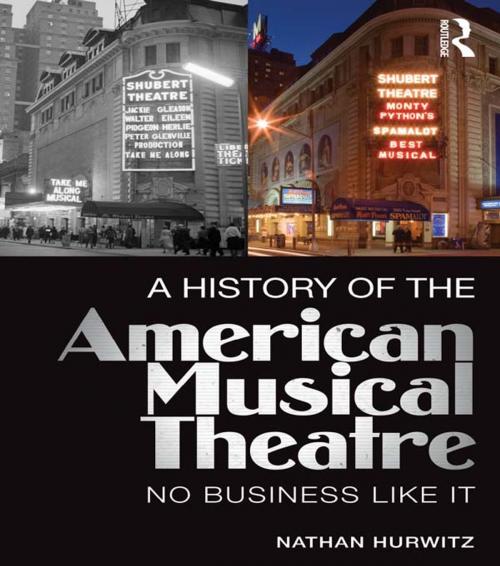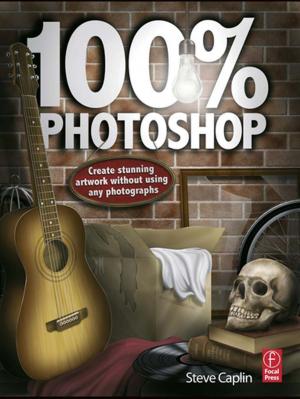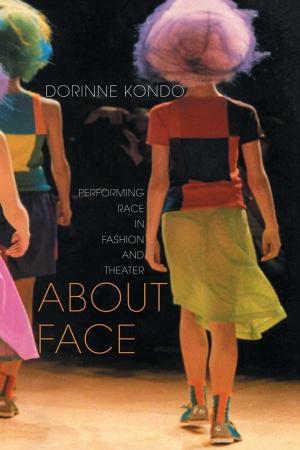A History of the American Musical Theatre
No Business Like It
Nonfiction, Entertainment, Theatre, Performing Arts, History, Americas, United States, 20th Century| Author: | Nathan Hurwitz | ISBN: | 9781317912040 |
| Publisher: | Taylor and Francis | Publication: | June 27, 2014 |
| Imprint: | Routledge | Language: | English |
| Author: | Nathan Hurwitz |
| ISBN: | 9781317912040 |
| Publisher: | Taylor and Francis |
| Publication: | June 27, 2014 |
| Imprint: | Routledge |
| Language: | English |
From the diverse proto-theatres of the mid-1800s, though the revues of the ‘20s, the ‘true musicals’ of the ‘40s, the politicisation of the ‘60s and the ‘mega-musicals’ of the ‘80s, every era in American musical theatre reflected a unique set of socio-cultural factors.
Nathan Hurwitz uses these factors to explain the output of each decade in turn, showing how the most popular productions spoke directly to the audiences of the time. He explores the function of musical theatre as commerce, tying each big success to the social and economic realities in which it flourished.
This study spans from the earliest spectacles and minstrel shows to contemporary musicals such as Avenue Q and Spiderman. It traces the trends of this most commercial of art forms from the perspective of its audiences, explaining how staying in touch with writers and producers strove to stay in touch with these changing moods. Each chapter deals with a specific decade, introducing the main players, the key productions and the major developments
in musical theatre during that period.
From the diverse proto-theatres of the mid-1800s, though the revues of the ‘20s, the ‘true musicals’ of the ‘40s, the politicisation of the ‘60s and the ‘mega-musicals’ of the ‘80s, every era in American musical theatre reflected a unique set of socio-cultural factors.
Nathan Hurwitz uses these factors to explain the output of each decade in turn, showing how the most popular productions spoke directly to the audiences of the time. He explores the function of musical theatre as commerce, tying each big success to the social and economic realities in which it flourished.
This study spans from the earliest spectacles and minstrel shows to contemporary musicals such as Avenue Q and Spiderman. It traces the trends of this most commercial of art forms from the perspective of its audiences, explaining how staying in touch with writers and producers strove to stay in touch with these changing moods. Each chapter deals with a specific decade, introducing the main players, the key productions and the major developments
in musical theatre during that period.















